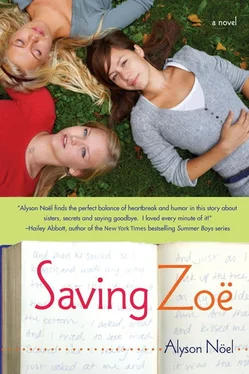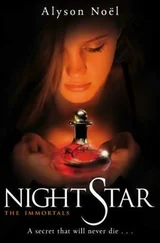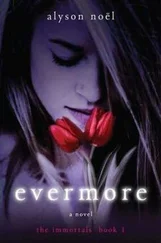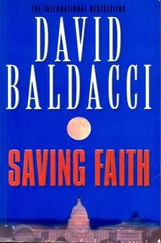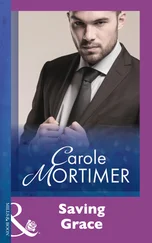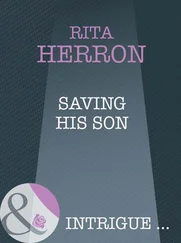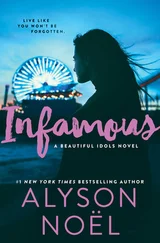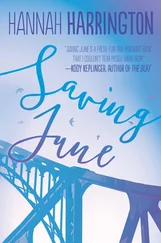For my sisters, Jolaine and Dori, and in memory of those who were taken too soon
I owe a huge debt of gratitude to: My readers, whose letters, e-mails, and posts to my bulletin board mean more to me than they probably realize; Kate Schafer, who believed in Echo’s story and is everything I could want in an agent and more; everyone at St. Martin’s Press, including but not limited to Matthew Shear, Jennifer Weis, Stefanie Lindskog, Anne Marie Tallberg, and Abbye Simkowitz, for their support; my father, who gets to my book signings early; and, as always, to Sandy, for everything.
They say there are five stages of grief:
1. Denial
2. Anger
3. Bargaining
4. Depression
5. Acceptance
Up until last year I didn’t know there were lists like that. I had no idea people actually kept track of these things. But still, even if I had known, I never would’ve guessed that just a few days before my fourteenth birthday I’d be stuck in stage one.
But then you never think that kind of bad news will knock on your door. Because those kinds of stories, the kind that involve a stone-faced newscaster interrupting your favorite TV show to report a crucial piece of “late breaking news,” are always about someone else’s unfortunate family. They’re never supposed to be about yours.
But what made it even worse is that I was the first to know.
Well, after the cops.
And, of course, Zoë.
Not to mention the freak who was responsible for the whole mess in the first place.
And even though they didn’t exactly say anything other than “May we please speak to your parents?” It was the regret on those two detectives’ faces, the defeat in their weary eyes, that pretty much gave it all away.
It was after school and I was home alone, trying to keep to my standard cookie-eating, TV-watching, homework-avoiding routine, even though I really couldn’t concentrate on any of it. I mean, normally at 4:10 p.m. both my parents would still be at work, my sister, Zoë, would be out with her boyfriend, and I would be sitting cross-legged on the floor, wedged between the couch and the coffee table, dunking Oreos into a tall glass of cold milk until my teeth were all black, the milk was all sopped up, and my stomach was all swollen and queasy.
So I guess in a way I was just trying to emulate all of that, go through the motions, and pretend everything was normal. That my parents weren’t really out searching for Zoë, and that I wasn’t already in denial long before I had good reason to be.
But now, almost a year later, I can honestly say that I’m able to check off stages one through three, and am settling into stage five. Though sometimes, in the early morning hours, when the house is quiet and my parents are still asleep, I find myself regressing toward four. Especially now that September’s here, putting us just days away from the one-year anniversary of the last time Zoë shimmied up the big oak tree, climbed onto my balcony, and came in through my unlocked french doors.
I remember rolling over and squinting against the morning light, watching as she pressed her index finger to her smiling lips, her short red nail like the bottom of an upside-down exclamation point, as she performed her exaggerated, cartoonish, stealth tiptoe through my room, out my door, and down the hall.
Sometimes now, when I think back on that day, I add a whole new scene. One where, instead of turning over and falling back to sleep, I say something important, something meaningful, something that would’ve let her know, beyond all doubt, just how much I loved and admired her.
But the truth is, I didn’t say anything.
I mean, how was I supposed to know that was the last time I’d ever see her?
When the woman at the funeral home, the one in the long floral dress, with the frizzy french braid, asked for a picture of Zoë, my mom dropped her head in her hands and sobbed so hysterically that my dad pulled her close, clenched his jaw, and nodded firmly, as though he was already working on it.
I stared at the toe of my black Converse sneaker, noticing how the fabric was wearing thin, and wondering what that lady could possibly need a picture for. I guess it seemed like a weird request, considering how pretty much everywhere you looked in our town you’d see a picture of Zoë. And since my sister was always so elusive and hard to pin down in life, it seemed like I actually saw more of her after her disappearance than I had when she lived down the hall.
First there were the two “missing person’7 flyers taped to just about every available surface. One a stiff, grainy, black-and-white grabbed in a panic and copied from last year’s yearbook. The other, one of Zoë’s more recent headshots, depicting her as beautiful, loose, and happy, more like the sister I knew, that also included a generous reward for anyone with any information, no questions asked.
And then, as the days ticked by, her face started appearing just about everywhere — in newspapers, magazines, and nationally televised news reports. Even the makeshift memorial, built by well-wishers and propped up in front of our house, contained so many candles, poems, stuffed animals, angels, and photos of Zoë that it threatened to take over the entire street until my dad enlisted a neighbor’s help and hauled it all away.
The funny thing was, Zoë had always dreamed of being a model, an actress, someone famous and admired by all. She longed for the day when she could escape our small, boring town, and go somewhere glamorous, like L.A., or New York, just someplace exciting and far from here. And so, while we were out searching, while we were busy smothering our doubt with hope, I played this kind of game in my head where I pretended that all of this was great exposure for Zoë and her future as a famous person. Like it was the ultimate casting call. And I spent those long, empty, thankless moments imagining how excited she’d be when she finally came home and saw her face plastered all across the nation.
But then later, in the mortuary, as I watched my parents make the world’s most depressing arrangements, encouraged into credit card debt by the man in the stark black suit who guided them toward the most luxurious casket, the most abundant flowers, and the whitest doves — sparing no expense at her memory — I sat wide-eyed, realizing the lucrative business of loss, while wondering if my mom got the irony behind Zoë’s ambition and the woman’s request, and if that’s why she was crying so hard.
But then, I guess there were millions of reasons to cry that day. So it’s not like I had to go searching for The One.
I didn’t know why that woman wanted a photo, but I doubted my dad, grief stricken and distracted, would ever remember to give her one. So after they’d signed away their savings and were headed out the door, I reached into my old blue nylon wallet, the one with the surf brand sticker still partially stuck to the front, its edges frayed and curled allaround, and retrieved the photo Zoë had given me just a few weeks before, the one that showcased her large dark eyes, generous smile, high cheekbones, and long wavy, dark hair. The one she’d planned to send to the big New York and LA agencies.
“Here,” I said, pressing it into the woman’s soft, round hand, watching as she did the quick intake of breath I was so used to seeing when confronted with an image of Zoë for the very first time.
She looked at me and smiled, the fine lines around her blue eyes merging together until almost joining as one. “ I’llbe doing her makeup, and I want to get it just right. So, thank you—” She left that last part dangling, looking embarrassed that she knew all about my loss,but didn’t know my name.
Читать дальше
